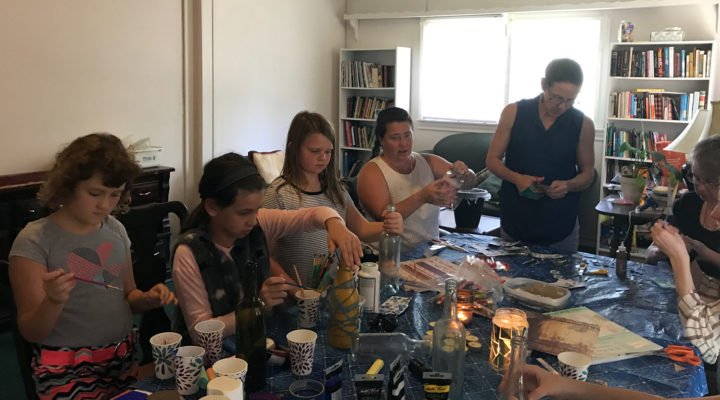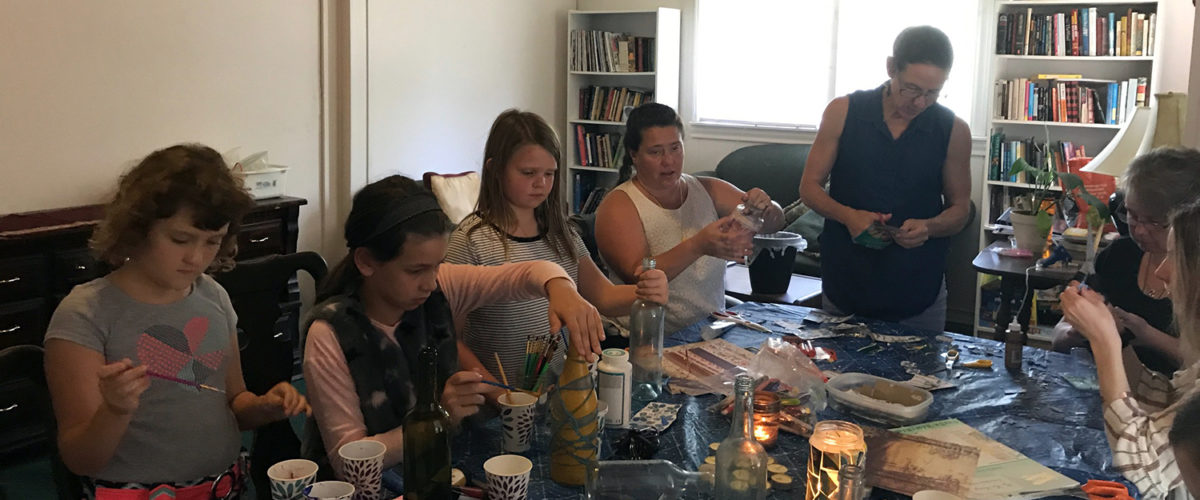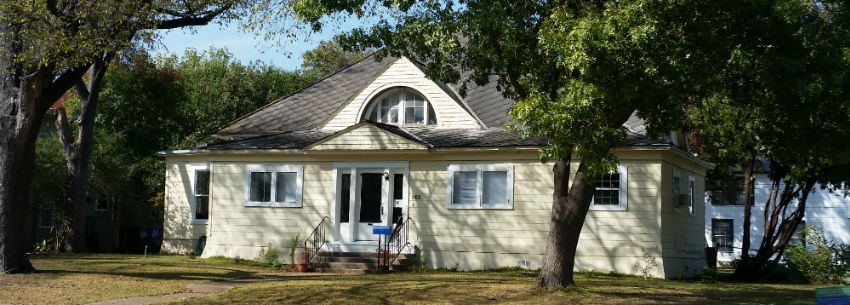Kendall Ellis is embarked on a quest to discern her vocation.
It began with studying for a career in medicine when she, and her undergraduate work at Georgetown College in Kentucky, changed direction.
“I ended up with a French degree and a minor in biology,” says Ellis, 24.
Language study sparked a passion for cross-cultural experiences and how societies view and process life. That led to a tantalizing glimpse into social work.
“You could maybe call it a calling,” the Frankfort, Ky., native said.
To find out, Ellis has become the resident of a faith-based activity center in Waco, Texas.
Like the other “settlers” who live at Good Neighbor House in Waco’s Sanger Heights community, Ellis will spend a year planning and hosting meetings of neighborhood groups and encouraging other activities aimed at fostering relationships throughout the area.
The home is the brainchild of Baylor University Professor Laine Scales, who purchased the abandoned property in 2011 in hopes of it becoming social and spiritual hub in the community. It celebrates a year in operation this month.
Scales, who teaches education and social work at Baylor, said her idea was inspired by the settlement house movement of the 19th and early 20th centuries.
Settlement house practitioners purchased or rented homes in urban areas to use as community centers from which to provide social and educational services to the working poor and other impoverished Americans. The movement helped spawn what later became the social work profession.
Inspired by that work, members of Southern Baptist Woman’s Missionary Union opened a settlement house in Louisville in 1912. It functioned as a school for women who at the time were ineligible for seminary study. Through it they prepared for missionary and social work careers.
“It became a learning lab,” Scales said. It eventually became the Carver School of Church Social Work.
That work led to the opening of more WMU houses.
The story also inspired a book on Carver’s history that Sailes is researching and writing with Howard Payne University assistant professor Melody Maxwell.
“The idea behind the settlement movement is we are going to live with you and stand beside you as neighbors,” Scales said.
That’s also the idea behind Good Neighbor House in Waco, she said.
Its neighborhood is diverse. Fifty percent of its residents are Hispanic while blacks and whites make up 25 percent each.
Those residents and their various clubs are welcome to use the house for formal and social gatherings.
A local Girl Scout troop meets at Good Neighbor House. Settlers simply welcome them in and, over time, try to build relationships with the girls and their parents.
“We don’t want to set the agenda,” Sailes said. “We want to say ‘bring us your interests, bring us your groups’ and we’ll figure out what do we can do to help,” she said.
The live-in settlers are being helped in discerning or living out callings at the Good Neighbor House, which consists of a main house and a cottage in the back.
Currently there are two couples and Ellis living and working there. There will be an opening for another two to three settlers in 2018, Scales said.
Settlers pay a small fee to live at the house and work seven to 10 hours a week. The rest of the time they either work or go to school.
“We meet with them every week to facilitate their formation in every way possible,” she said.
The opportunity to explore her growing interest in social work drew Ellis to Good Neighbor House.
That interest began with exposure to the cultural and social interactions she encountered majoring in French. That led her to an internship at Kentucky Refugee Ministries, where she discovered a potential career field that dovetails with her talents for organization and connecting with others.
That was clinical social work. At Good Neighbor House she hopes to get experience on the organizational, fundraising and community development side of social work.
In addition to her work with neighbors, Ellis also attends Good Neighbor House board meetings.
“In social work you are meeting people where they are and finding ways to meet different needs,” she said.




